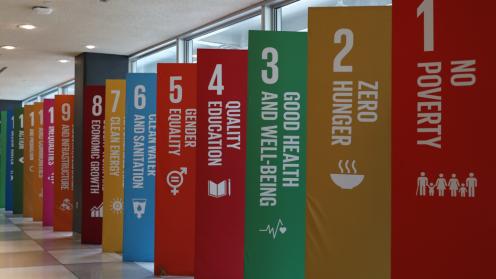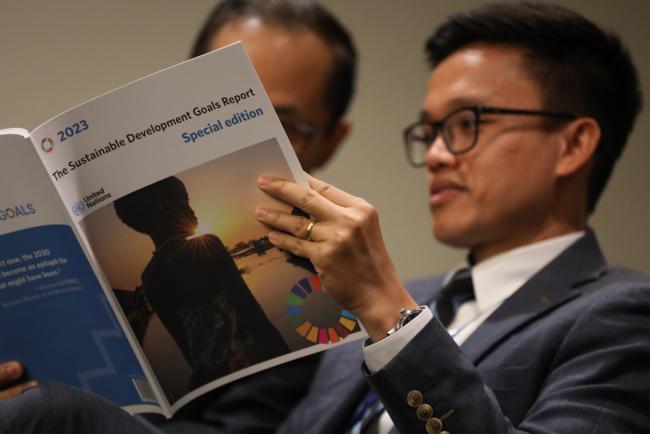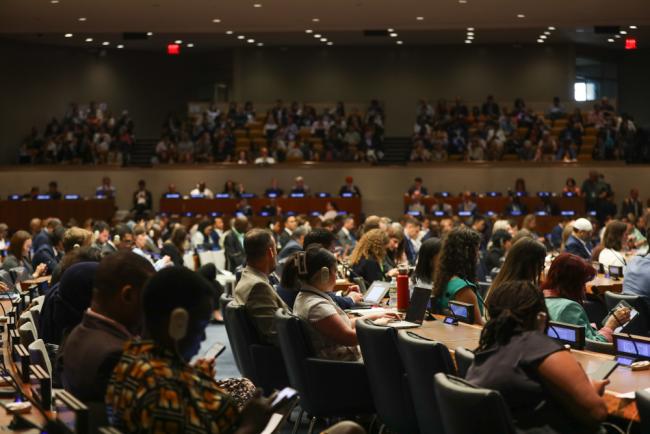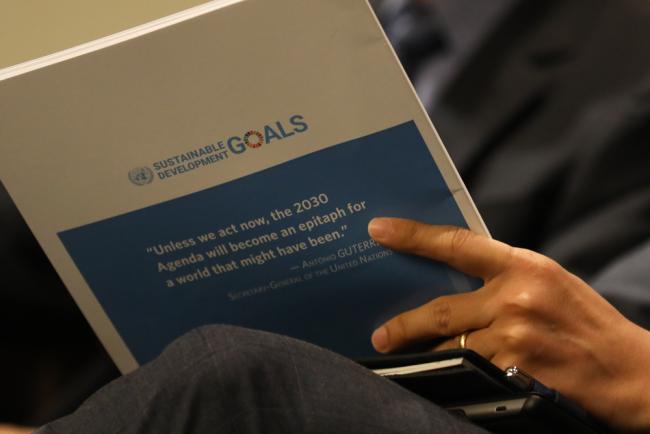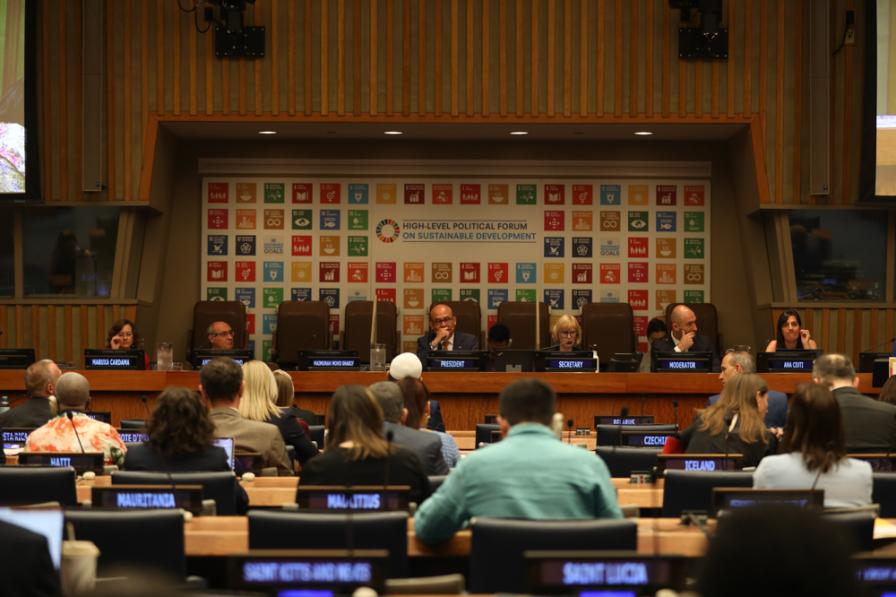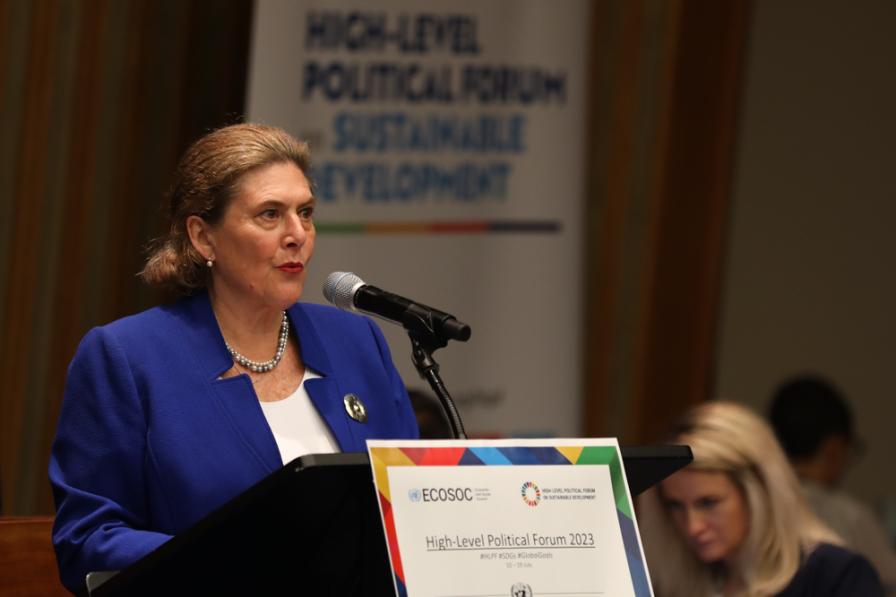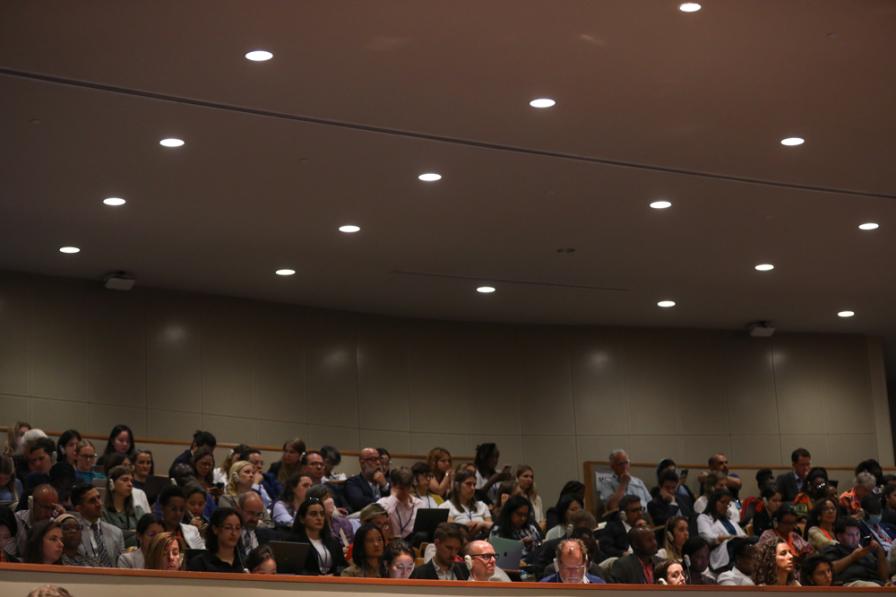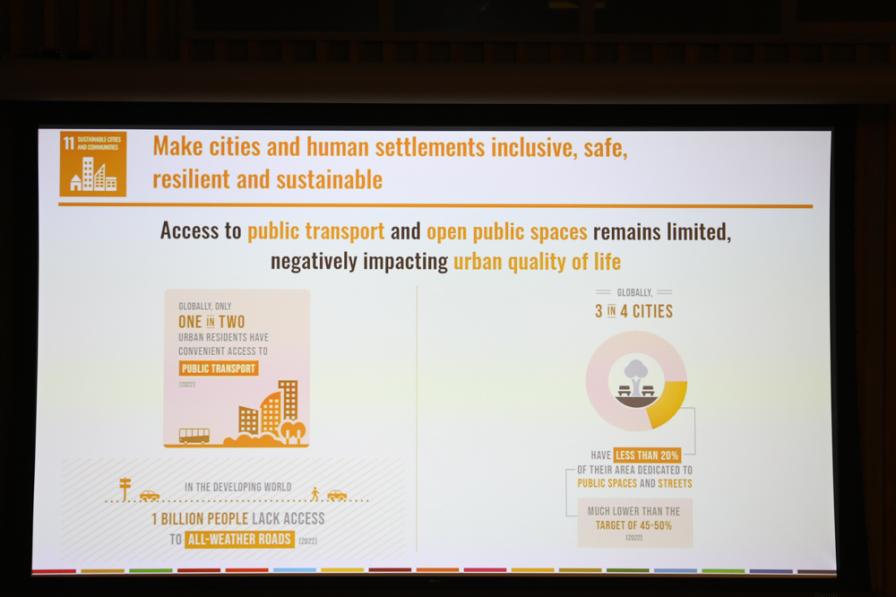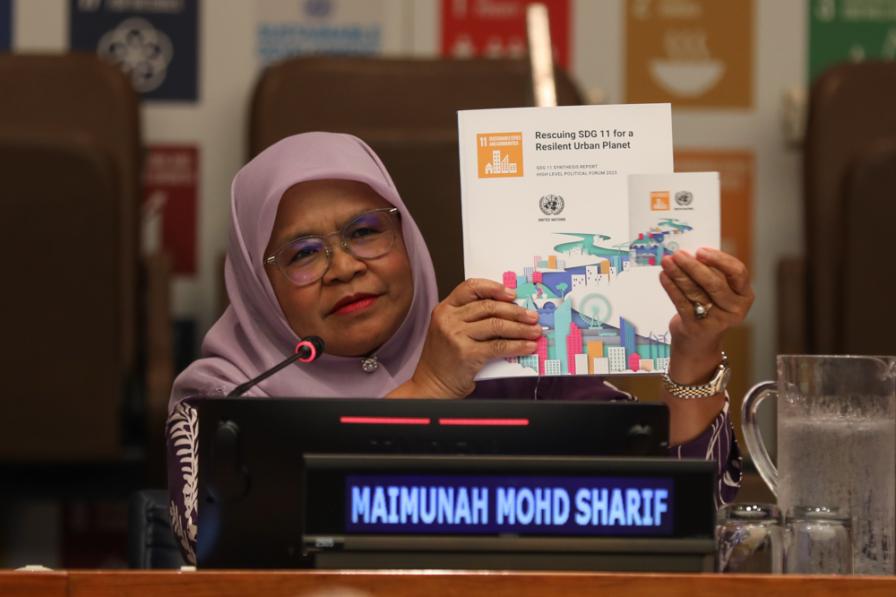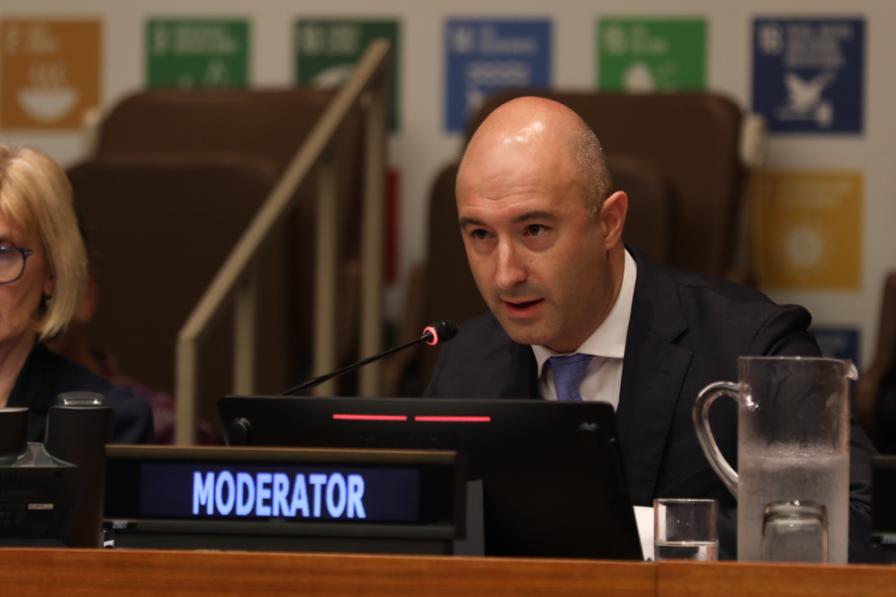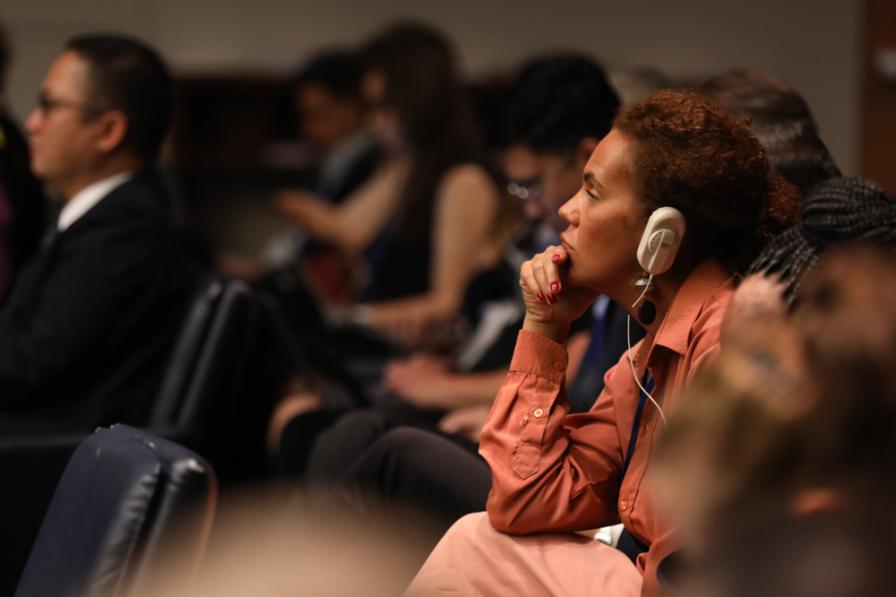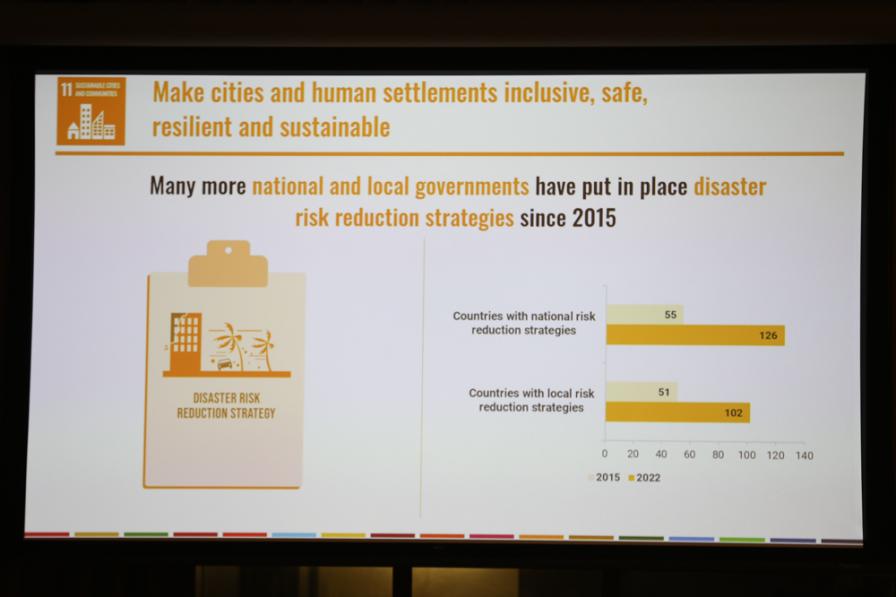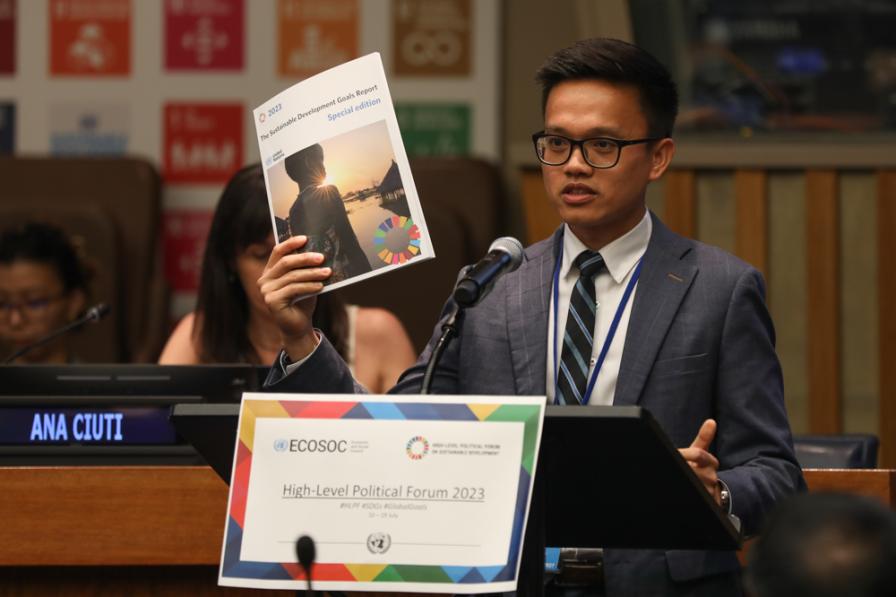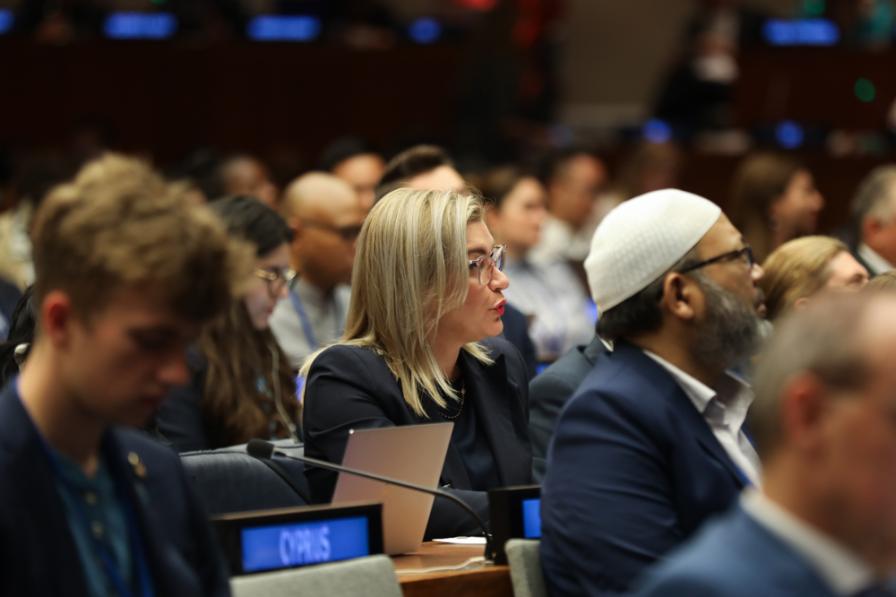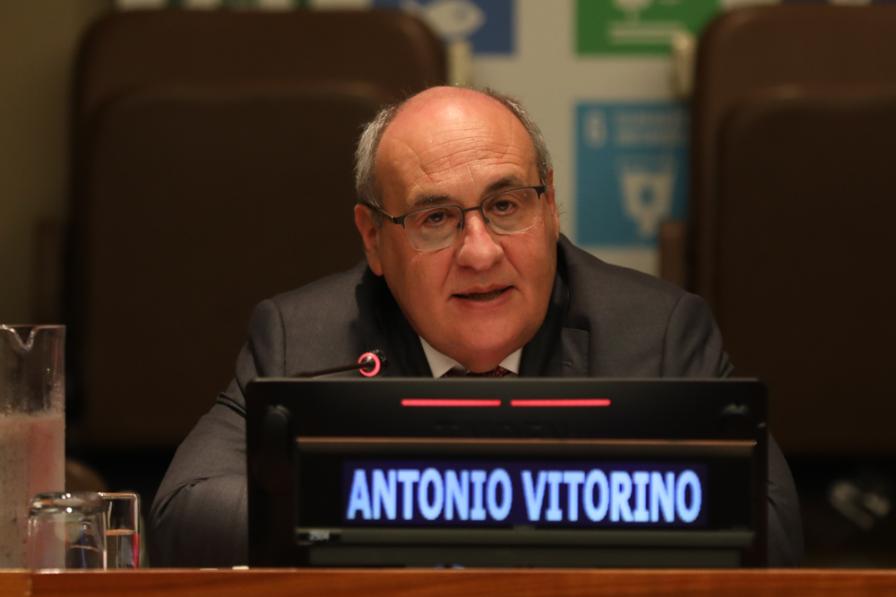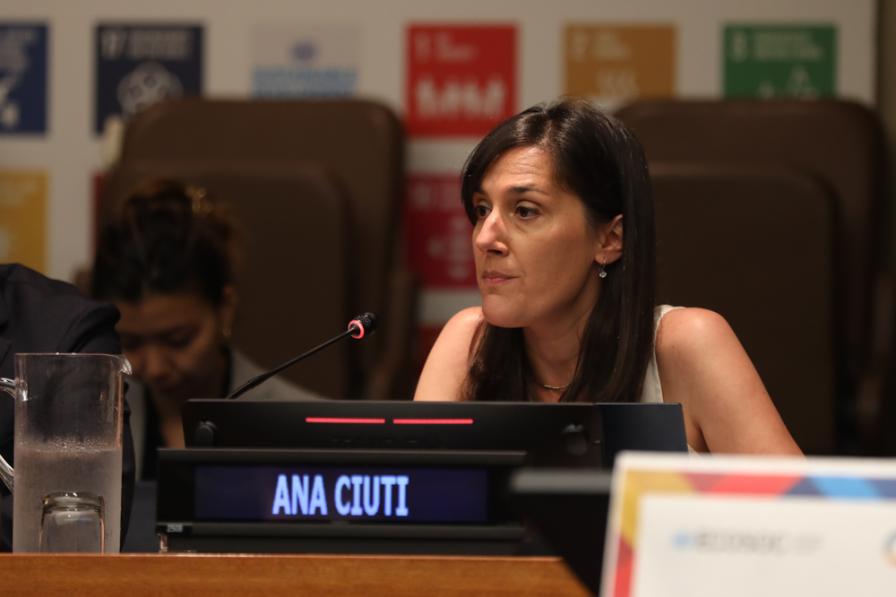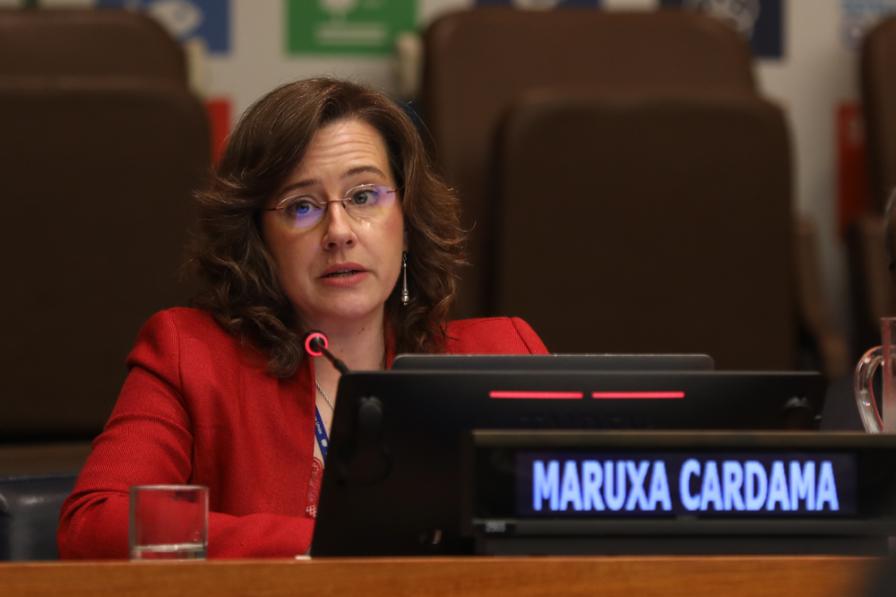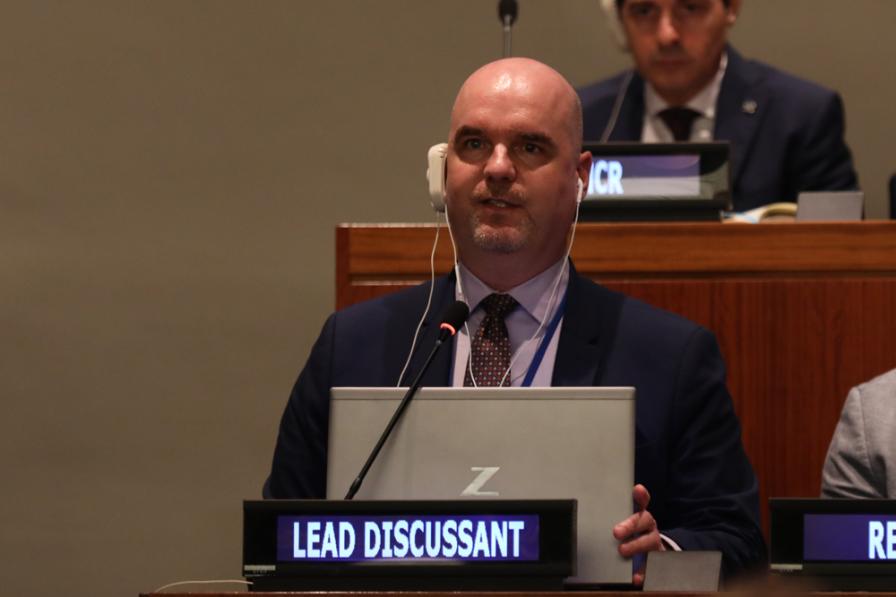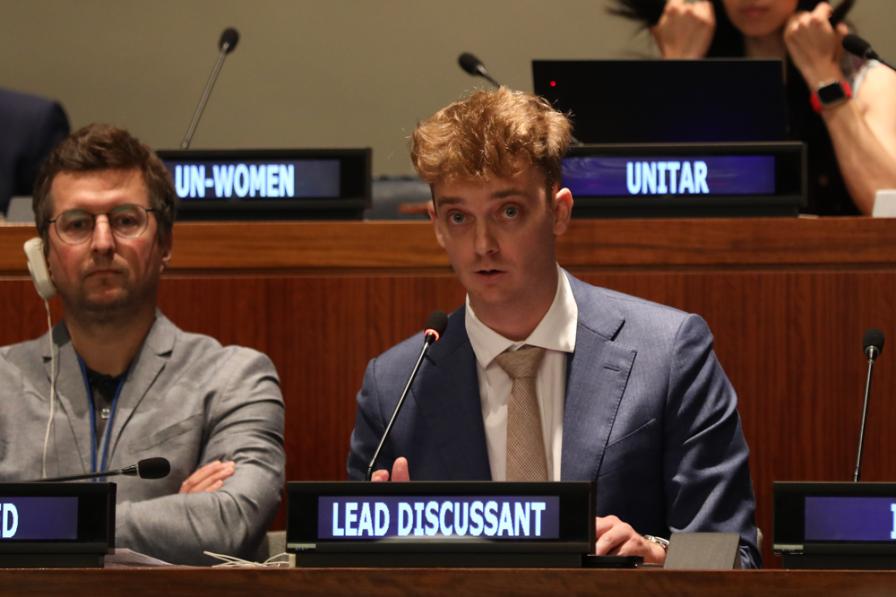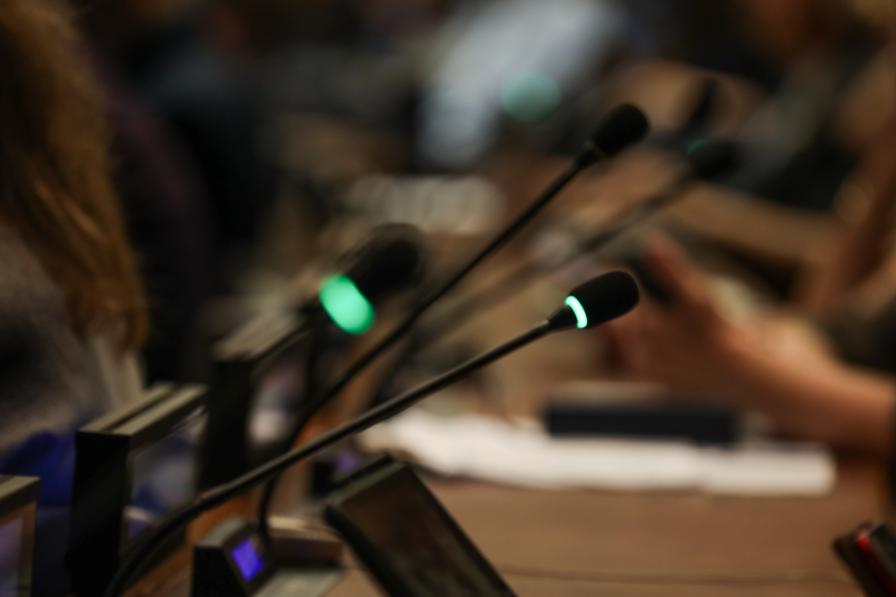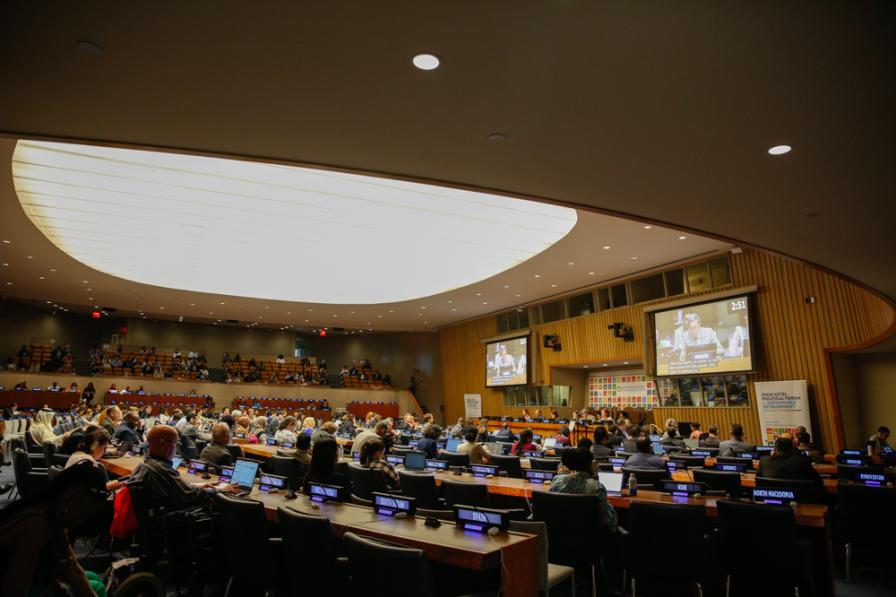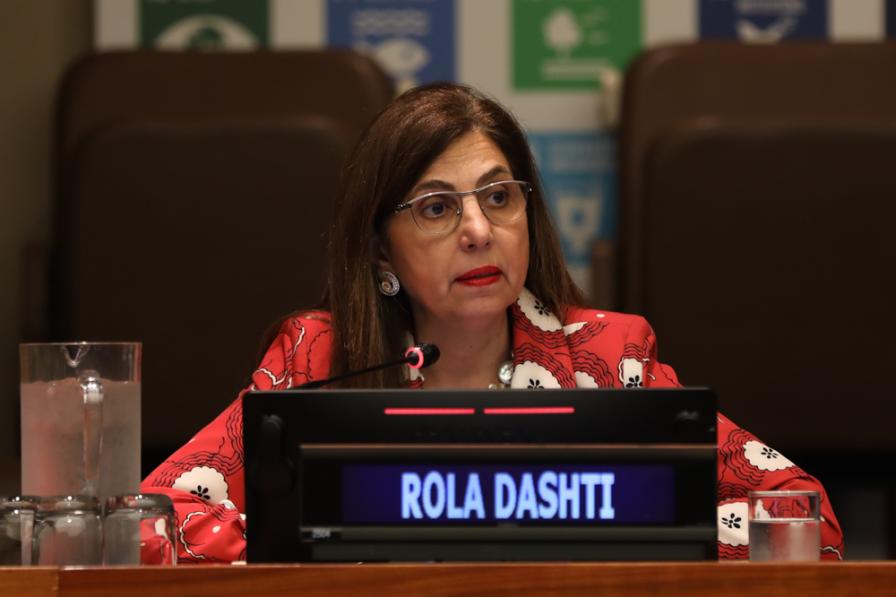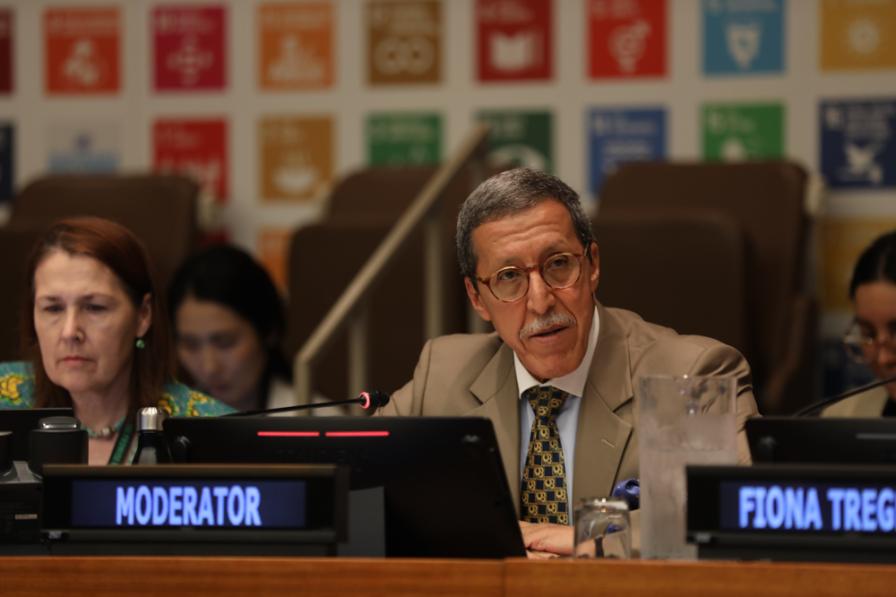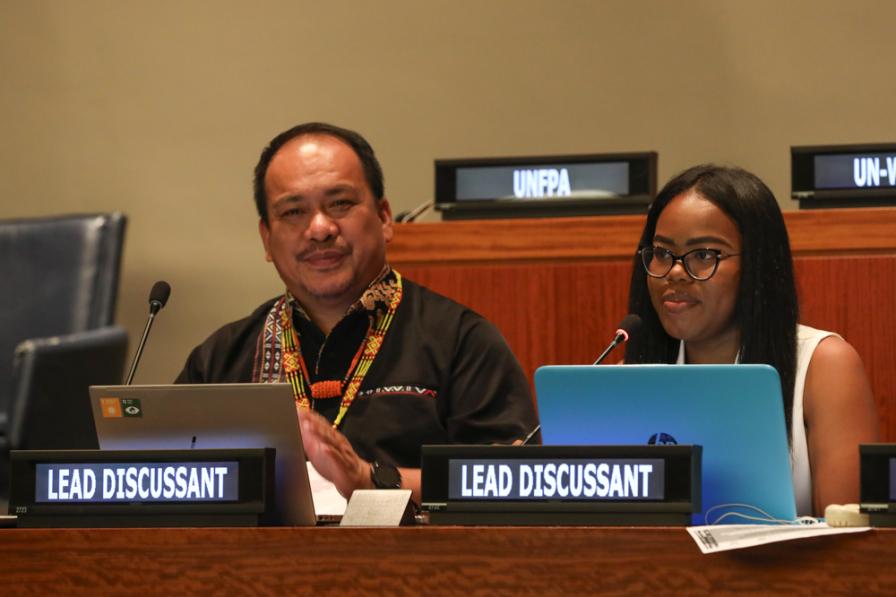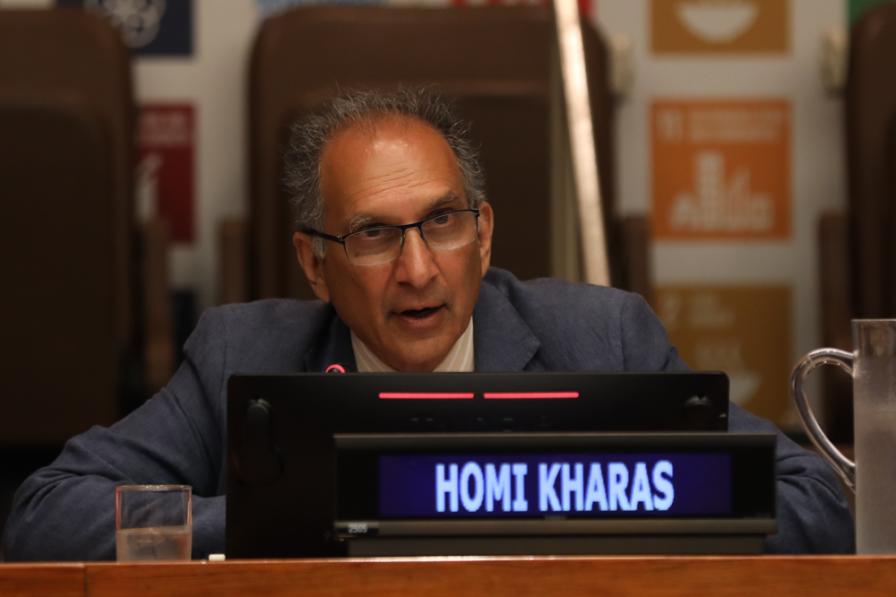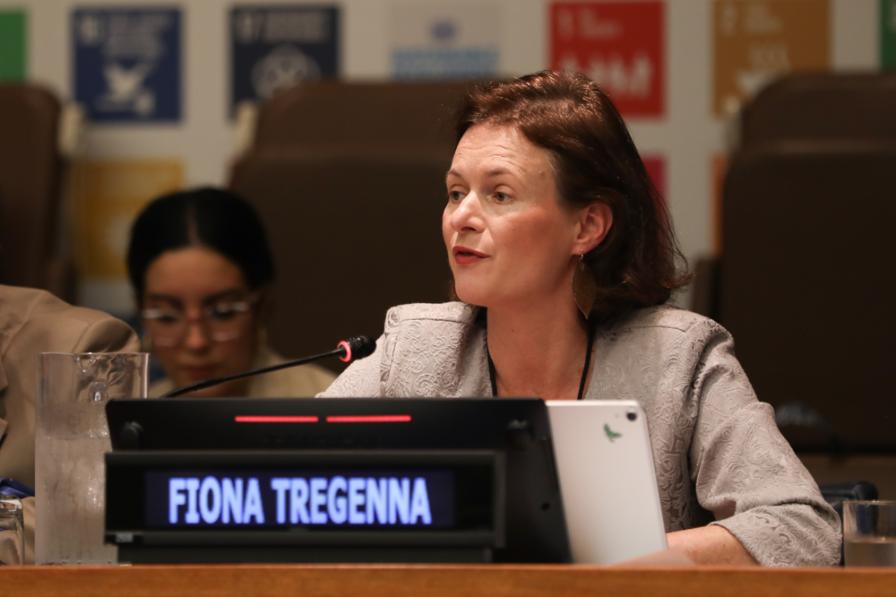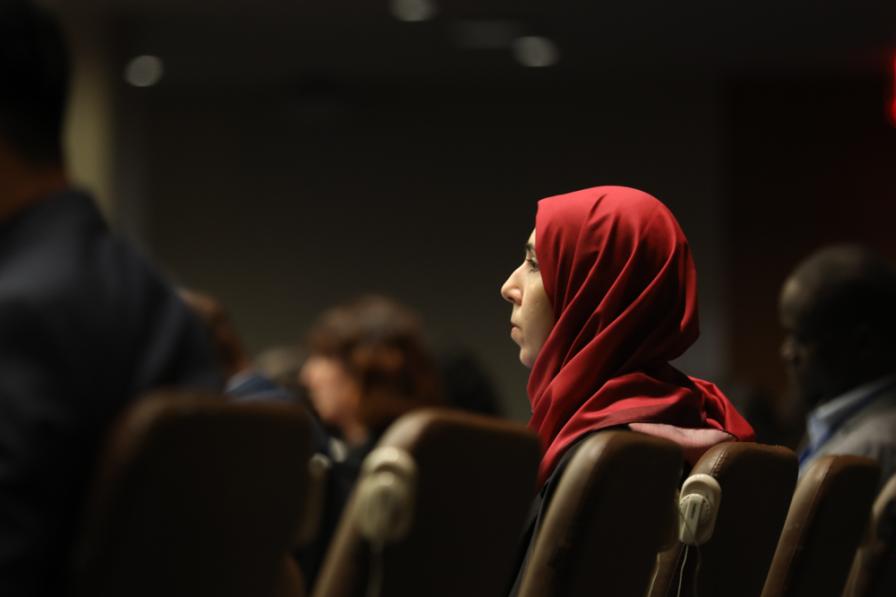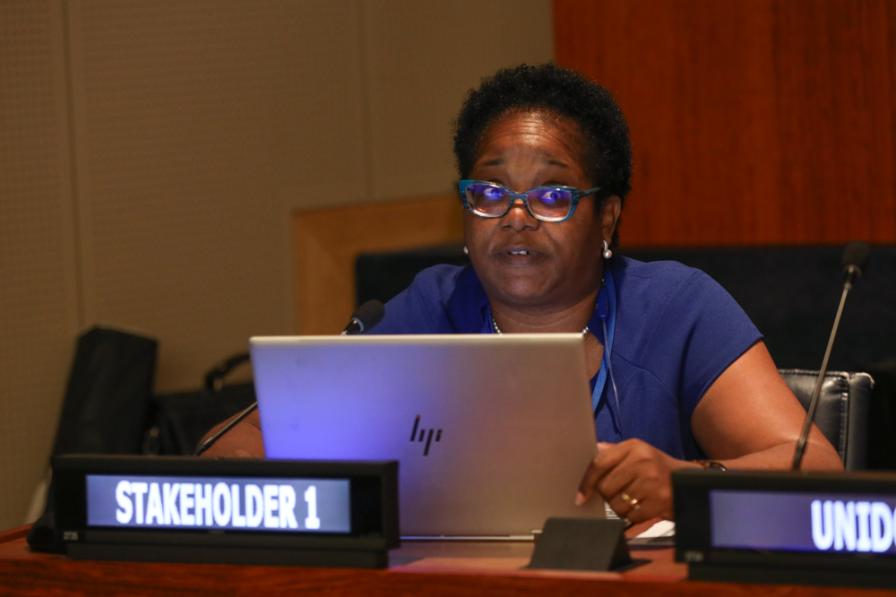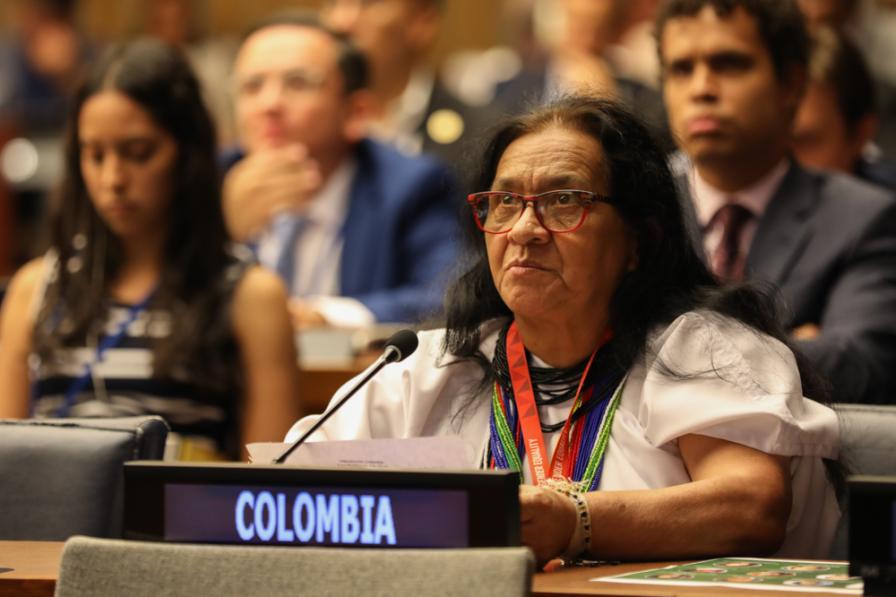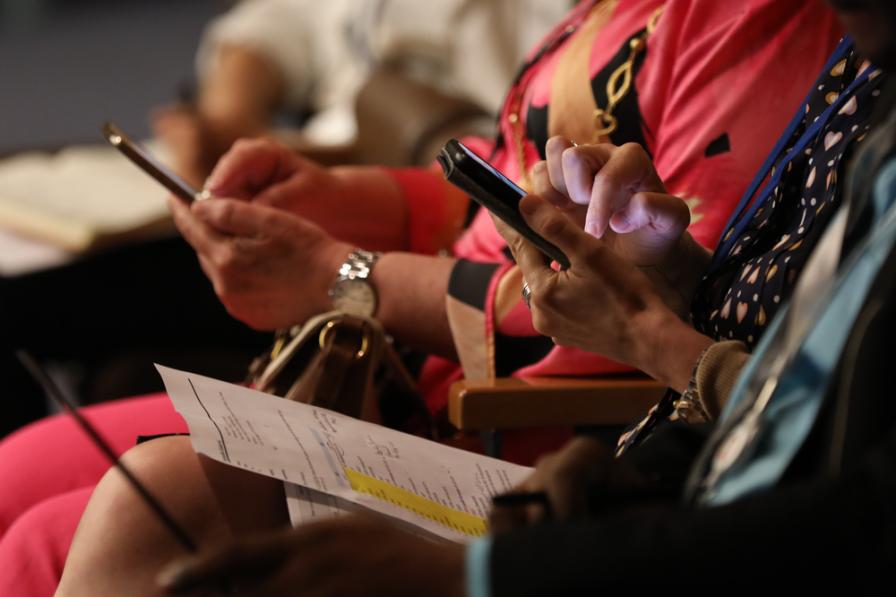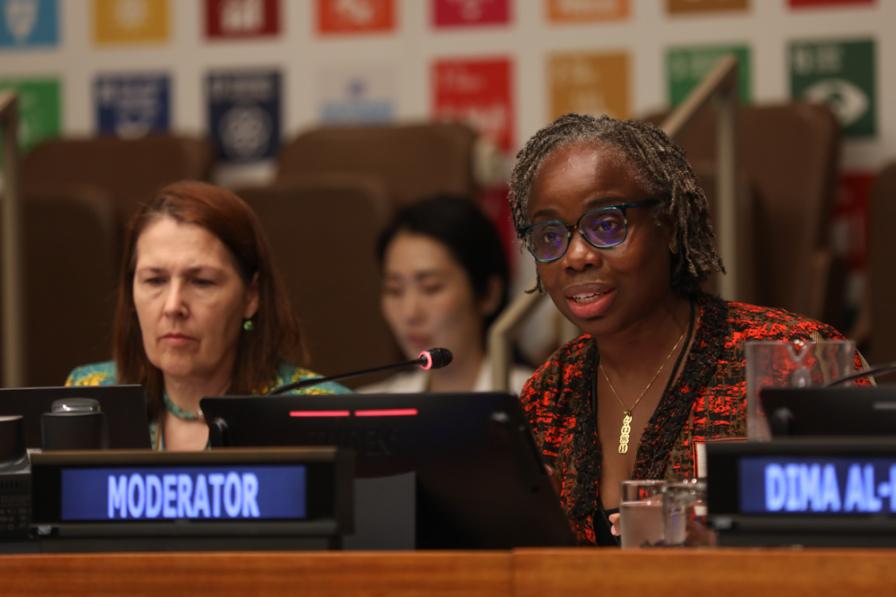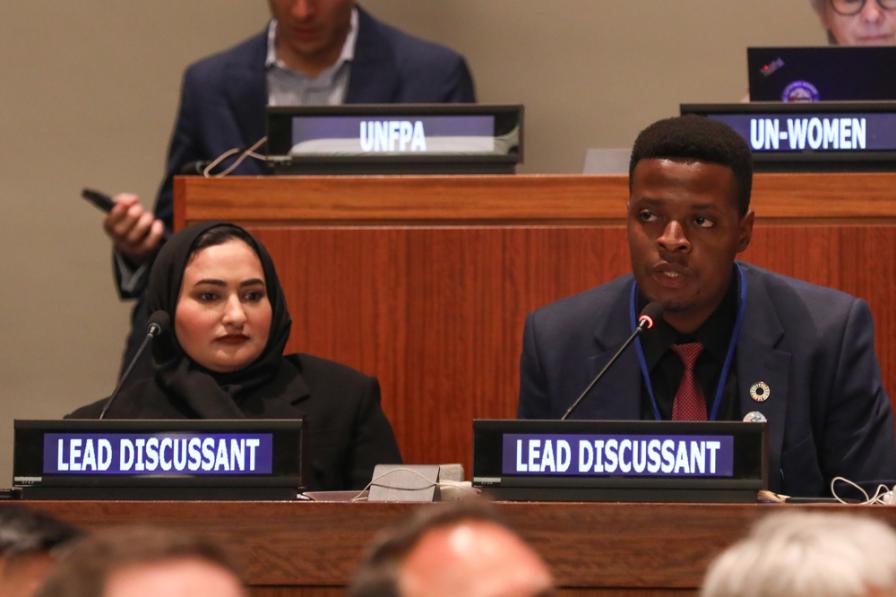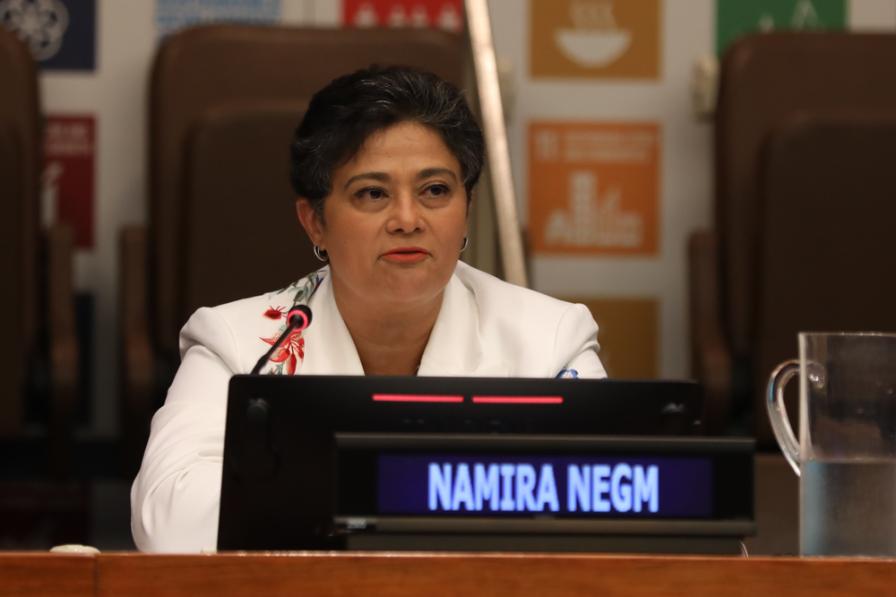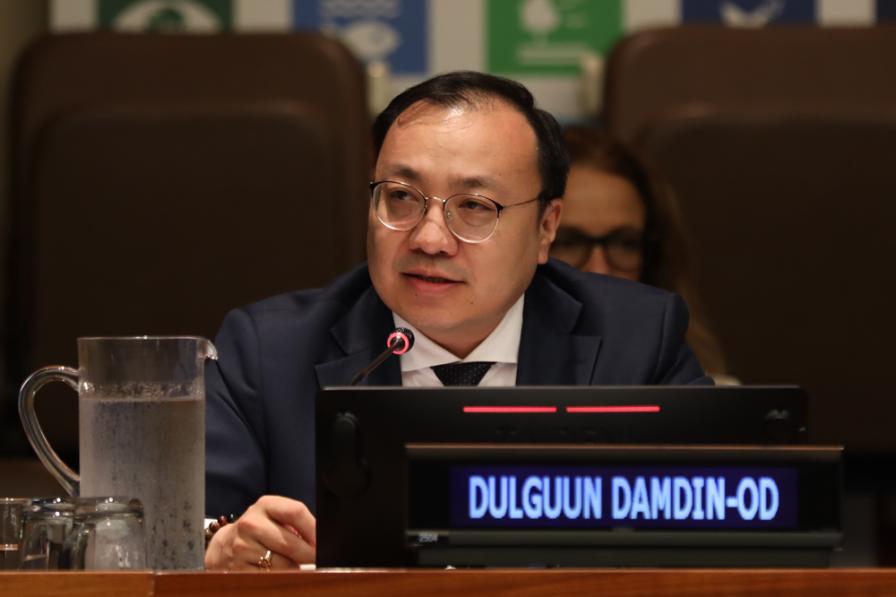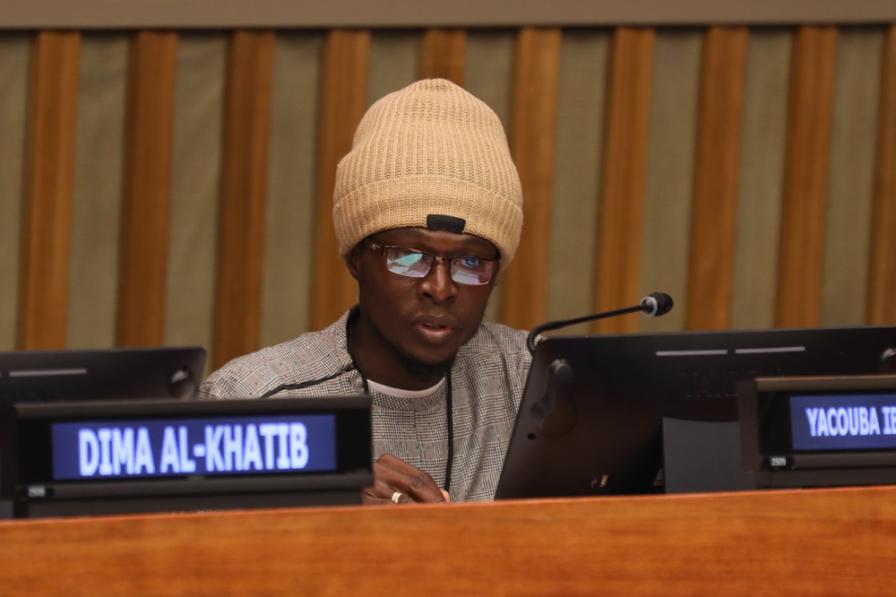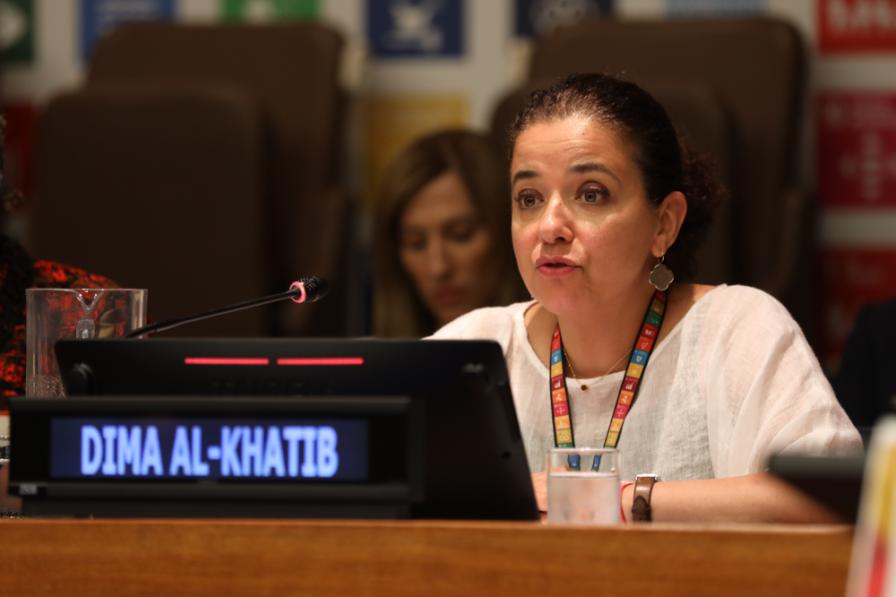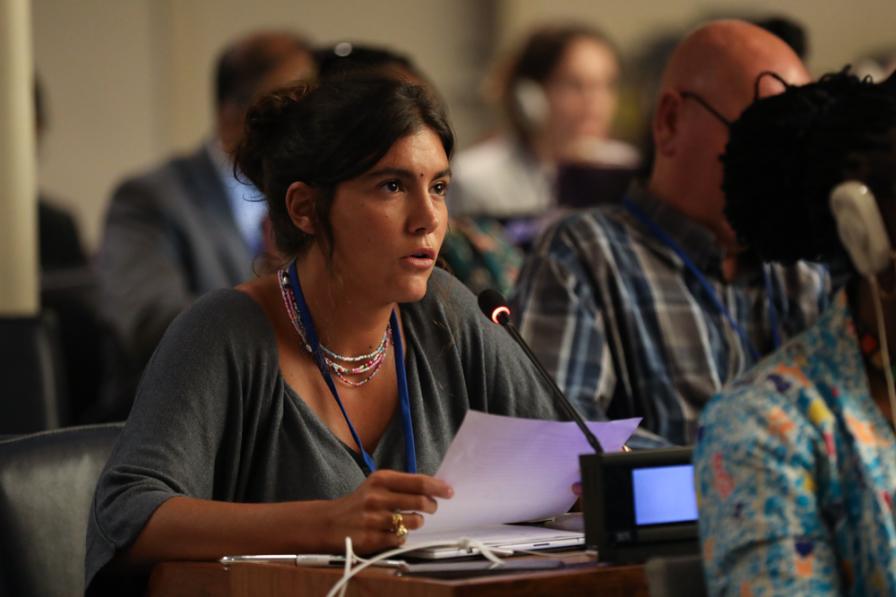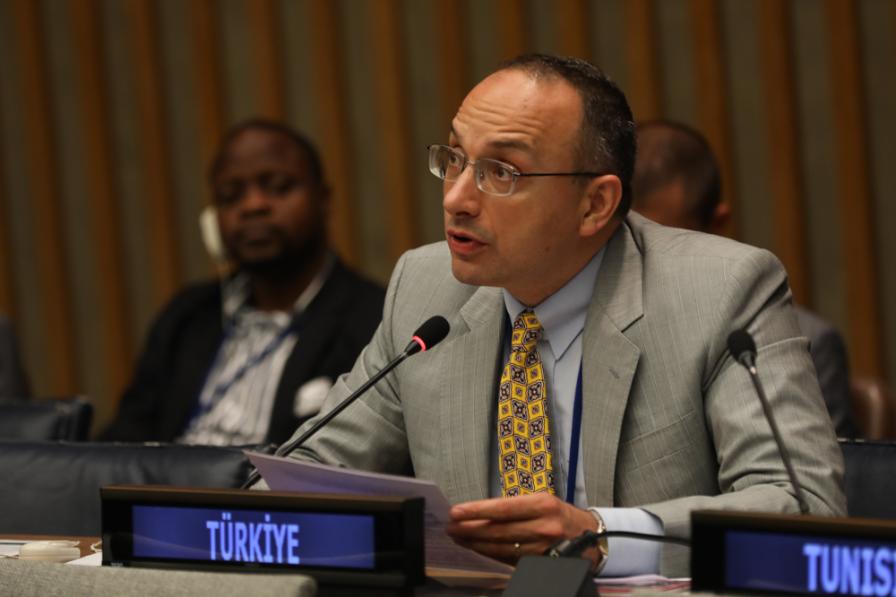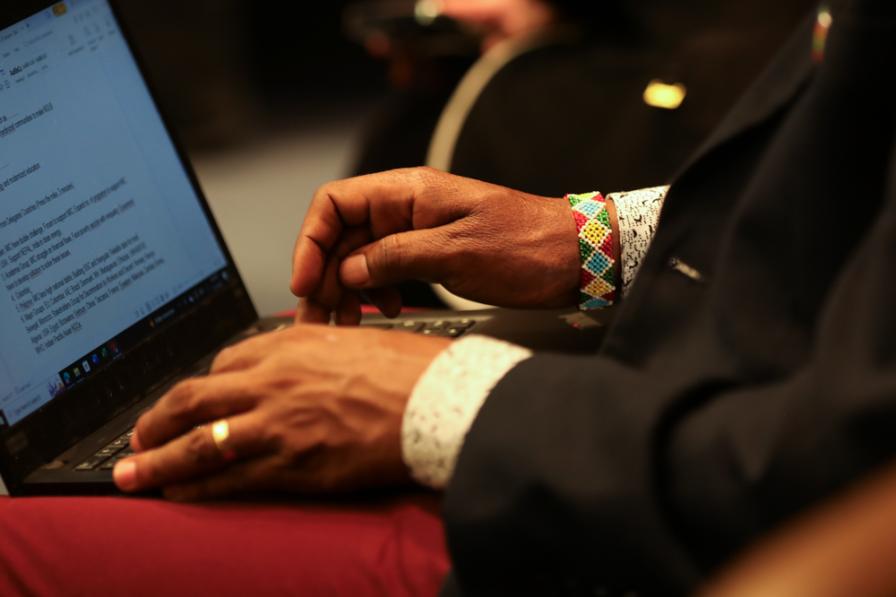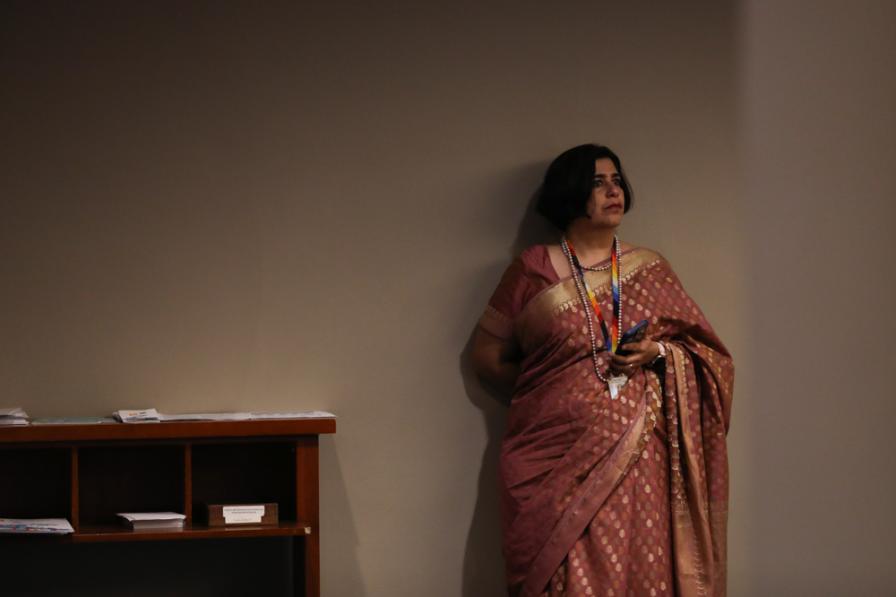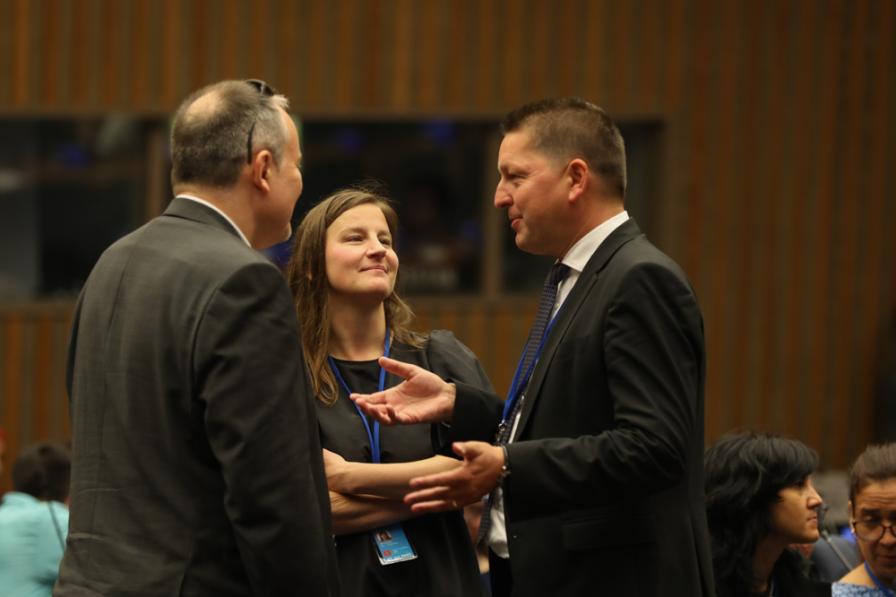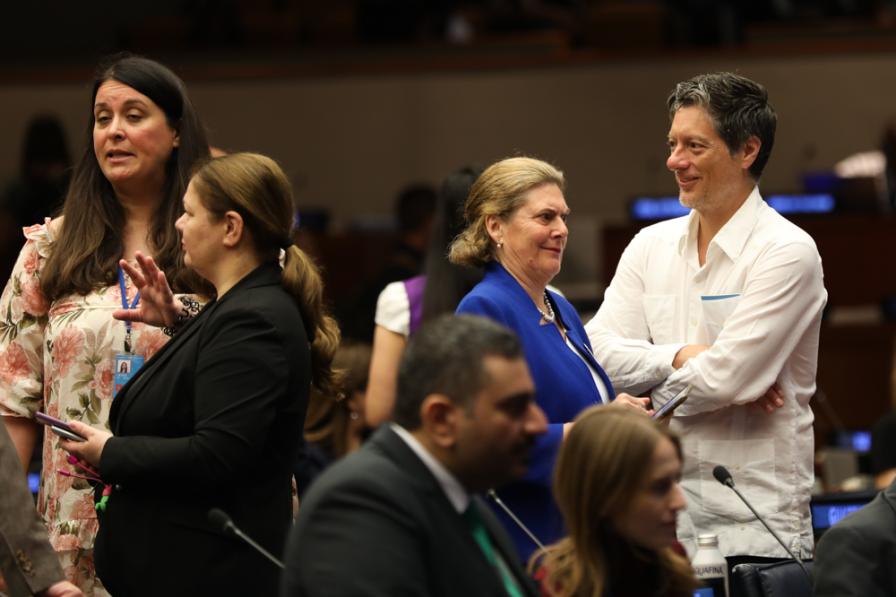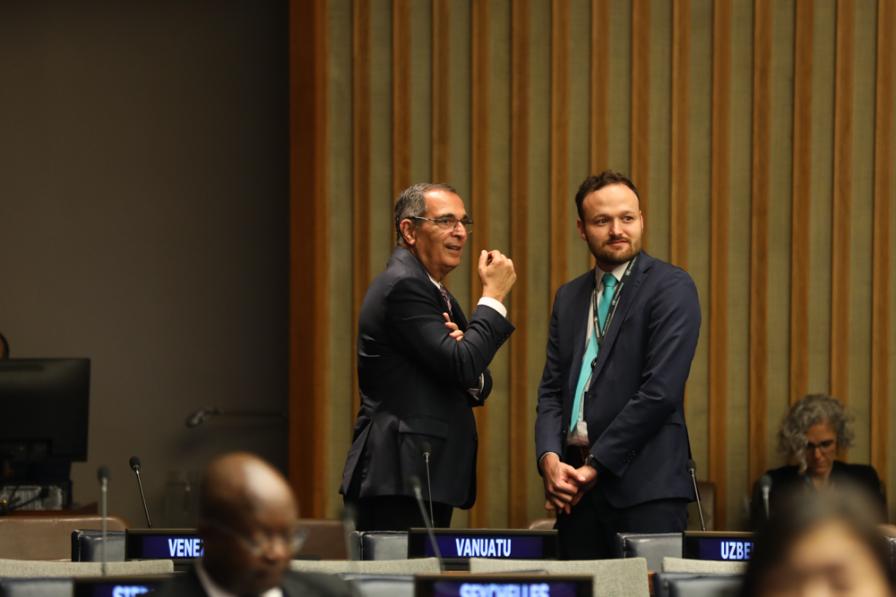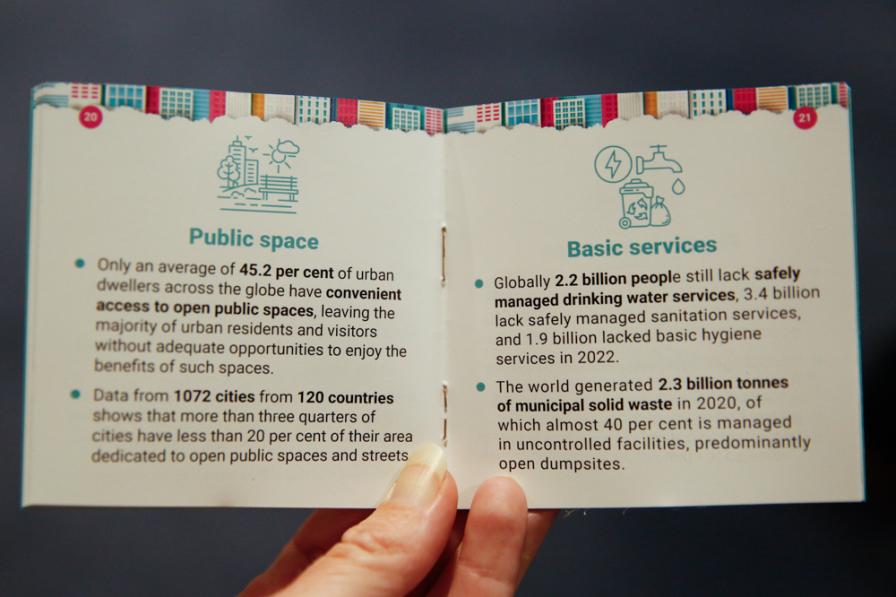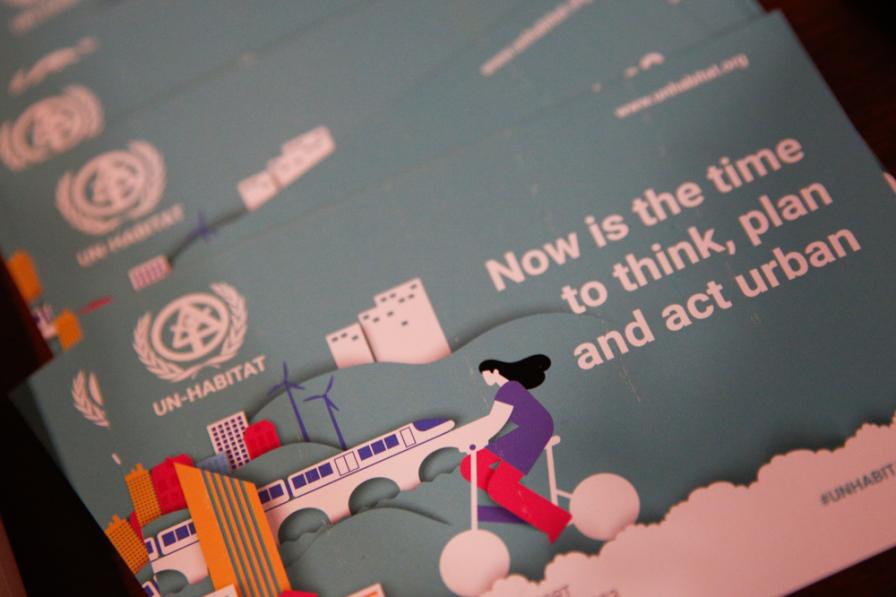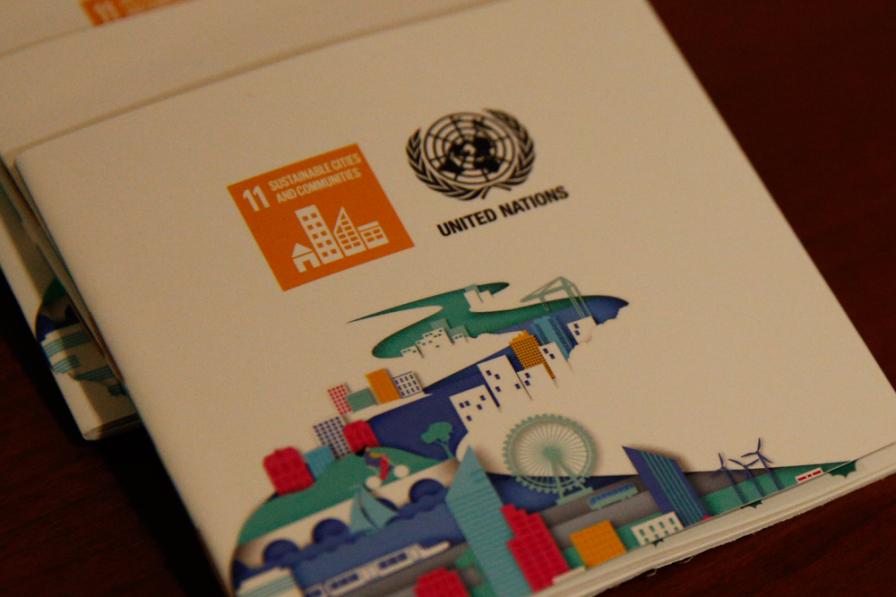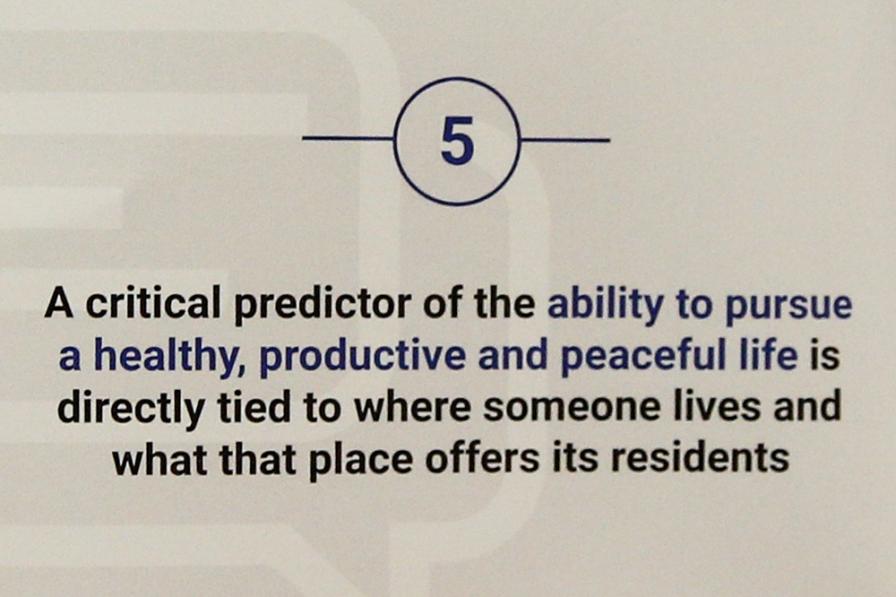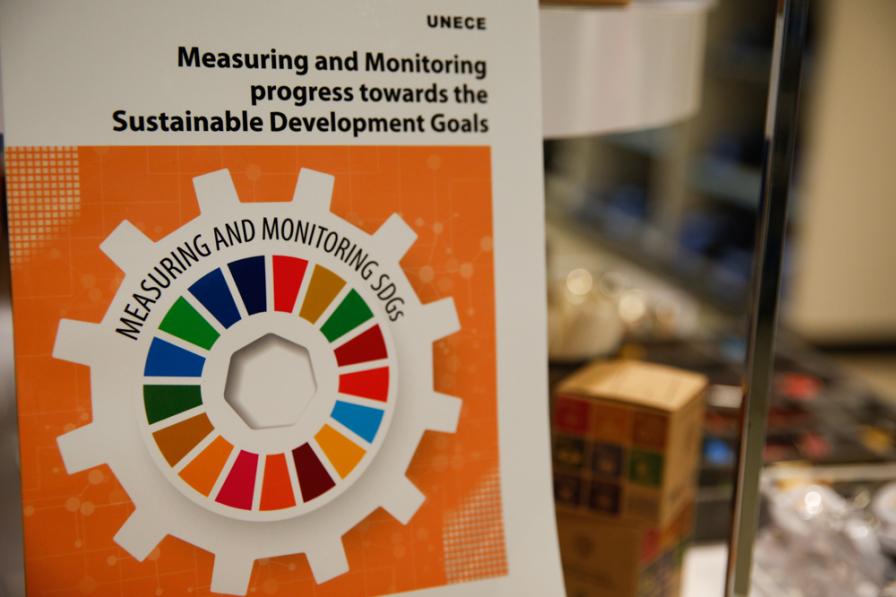Urban and peri-urban areas are a crucial nexus for implementation of the Sustainable Development Goals (SDGs), and empowering cities and communities is key to successfully “localizing” the 2030 Agenda for Sustainable Development. This was among the main messages underscored by delegates on the fourth day of the 2023 High-level Political Forum on Sustainable Development (HLPF).
Delegates also heard a progress report on the 10-Year Framework of Programmes (10YFP) on Sustainable Consumption and Production Patterns (SCP) and discussed the special challenges in SDG implementation faced by middle-income countries (MICs), Africa, least developed countries (LDCs), and landlocked developing countries (LLDCs).
Want to dive deeper? Read the full Earth Negotiations Bulletin daily report.
Progress Report on the 10-Year Framework of Programmes on Sustainable Consumption and Production Patterns
In her presentation of the progress report, Giovanna Valverde, Co-Chair, 10YFP Board, noted, among other things, a call to establish a multilateral and multi-stakeholder dialogue process under the aegis of the UN Environment Assembly and the Economic and Social Council (ECOSOC) and reporting to the HLPF or the UN General Assembly.
SDG 11 and Interlinkages with other SDGs – Sustainable Cities and Communities
Maimunah Mohd Sharif, Executive Director, UN-Habitat, stressed that the New Urban Agenda (NUA) offers a clear vision, targets, and commitments. Ana Ciuti, Ministry of Foreign Affairs, Argentina, focused on cities’ growing leadership for combatting climate change. Recalling the high number of pledges made by cities and local communities to the Global Compact’s Multi-Partner Trust Fund, António Vitorino, Director General, International Organization for Migration, stressed that migrants and local authorities must have a seat at the table.
Noting SDG 11 cannot be achieved without ensuring access to sustainable public transport, Maruxa Cardama, Secretary General, Partnership on Sustainable, Low Carbon Transport, Marc Workman, CEO, World Blind Union, and youth speaker Paul Stout decried car-dependent transport systems and emphasized the importance of making cities more walkable and ensuring public transport accessibility for all.
In the subsequent discussion, many welcomed outcomes from the second session of the UN-Habitat Assembly in June 2023, particularly the resolution on adequate housing for all, and voiced their continued support for implementing the NUA.
Overcoming Middle-income Countries’ Challenges in Advancing the 2030 Agenda
Delegates held the first-ever HLPF session focusing on the challenges faced by MICs, which often fall in a “trap” of no longer qualifying for concessional aid, yet have difficulty finding funds to implement the 2030 Agenda. Panelists outlined potential solutions to this trap, with Rola Dashti, Executive Secretary, Economic and Social Commission for Western Asia, underscoring that MICs’ debt crisis has real human costs and causes socio-economic upheaval across borders.
In the subsequent discussion, delegates welcomed having a MIC session on the HLPF agenda and called for the periodic examination of MICs' progress. Most delegates called for an intergovernmental process and the introduction of multidimensional poverty and vulnerability indices in addition to gross domestic product (GDP) for better allocation of development financing.
African Countries, Least Developed Countries and Landlocked Developing Countries
Panelists and delegates in this session shared examples of policies, measures and actions underway to improve the lives of the most vulnerable in this cluster of countries that are among the most marginalized in the world economy and furthest behind in achieving the SDGs.
Rabab Fatima, High Representative for the LDCs, LLDCs and Small Island Developing States (UN-OHRLLS), called for the full implementation of the Doha Programme of Action for LDCs for the Decade 2022-2031 (DPoA) adopted at the Fifth UN LDC Conference.
Namira Negm, Director, African Union Migration Observatory, discussed ongoing efforts by African countries to address the continent’s vulnerability to multiple crises. Stressing that they cannot do it alone, she urged partners to support efforts to maximize the value of Africa’s rich natural endowments.
In the subsequent discussion, delegates explored ideas to help Africa, LDCs and LLDCs, including:
- expanded trade access;
- debt relief;
- international financial system reform; and
- providing special funding windows for these countries for sustainable energy, transport, water, food security and climate action.
To receive free coverage of global environmental events delivered to your inbox, subscribe to the ENB Update newsletter.
All ENB photos are free to use with attribution. For HLPF 2023, please use: Photo by IISD/ENB | Kiara Worth.
Introduction of the Report on the 10-Year Framework of Programmes on Sustainable Consumption and Production Patterns
African Countries, LDCs, and LLDCs: Turning the Tide, Regaining Lost Ground, and Embarking on the Road to the SDGs
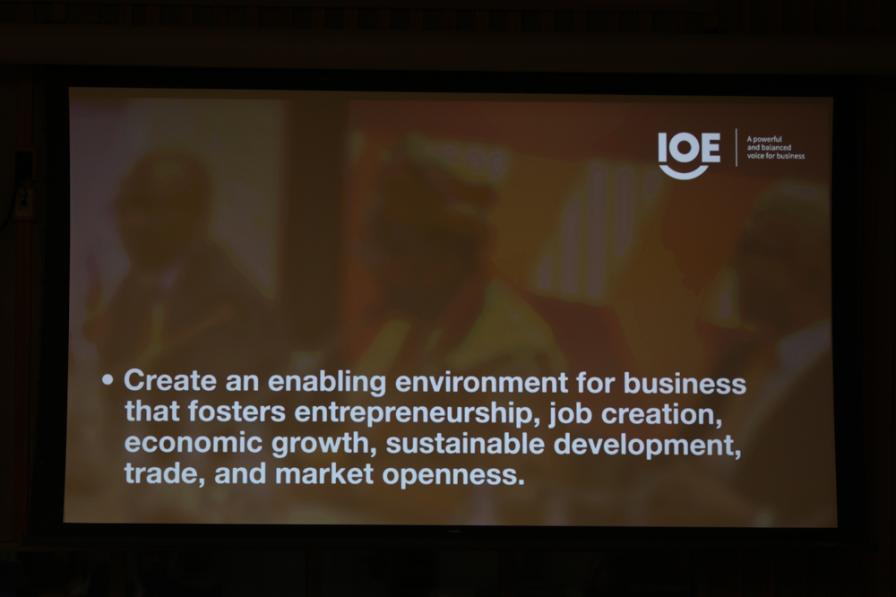
A video presentation during the session highlights key points to help turn the tide for the achievement of the SDGs
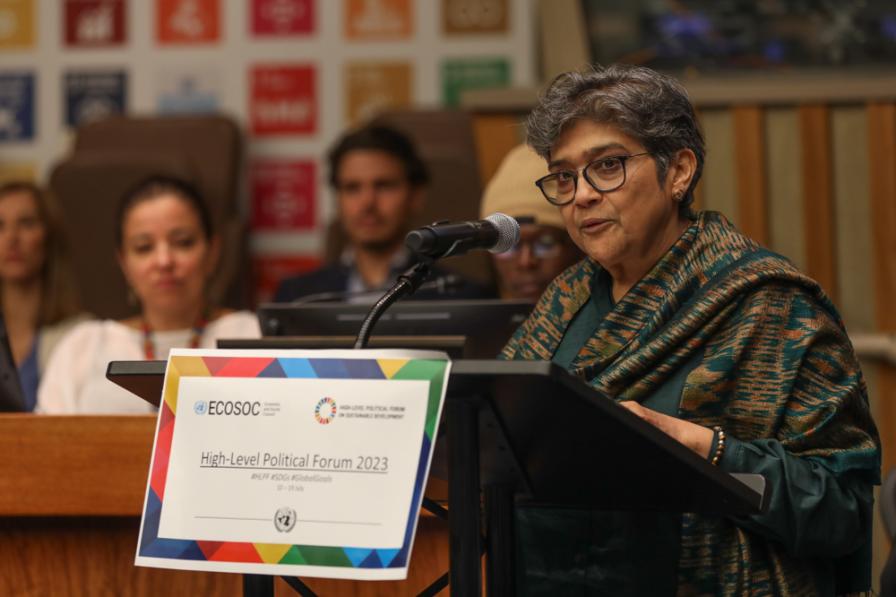
Rabab Fatima, High Representative for the LDCs, LLDCs and Small Island Developing States (UN-OHRLLS)
